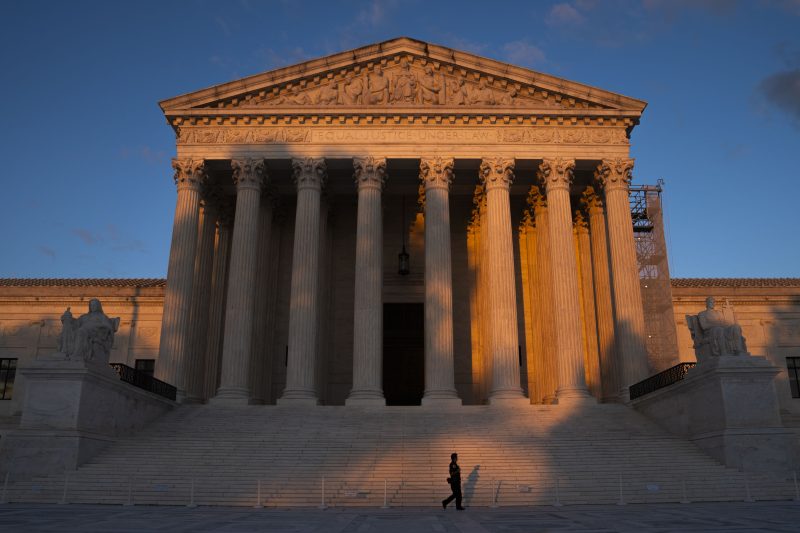
Supreme Court Delves into Mexican Lawsuit Against American Gun Manufacturers
In a recent development, the Supreme Court has taken up new cases for consideration, one of which involves a Mexican suit against U.S. gunmakers. This move by the highest court in the United States signifies a significant legal battle that could have implications for both countries.
The case in question originates from a 2016 lawsuit filed by Mexico against several American gun manufacturers. This legal action is based on the argument that these manufacturers are responsible for the illegal flow of weapons across the border into Mexico, which has contributed significantly to the escalating violence in the country.
This issue presents several complex legal questions that the Supreme Court will have to address. At the core of the matter is the concept of extraterritoriality – the extent to which U.S. laws apply to actions that occur outside its borders. In this case, the Court will have to determine whether American gunmakers can be held liable for the consequences of their products when they are used illegally in another country.
Moreover, the case raises questions about the limits of immunity granted to gun manufacturers under the Protection of Lawful Commerce in Arms Act (PLCAA). This federal law shields gunmakers from most lawsuits arising from the criminal misuse of their products. However, the Mexican government argues that this immunity should not extend to situations where manufacturers knowingly participate in illegal activities that result in harm abroad.
The outcome of this case will have far-reaching implications for the gun industry, international relations, and the interpretation of U.S. laws. If the Supreme Court rules in favor of Mexico, it could set a precedent that holds American gun manufacturers accountable for the use of their products beyond U.S. borders. On the other hand, a decision in favor of the gunmakers may reinforce the limits of legal liability for manufacturers and uphold the protections provided by the PLCAA.
Beyond the legal complexities, this case also highlights the broader issue of gun violence and its impact across borders. The illegal trafficking of firearms is a significant challenge faced by many countries, and addressing this problem will require international cooperation and legal mechanisms to hold all parties accountable for their role in facilitating these activities.
In conclusion, the Supreme Court’s decision to take on the Mexican suit against U.S. gunmakers marks a crucial step in addressing the complex legal and moral issues surrounding gun violence and international accountability. This case serves as a reminder of the interconnected nature of legal systems and the need for robust mechanisms to address cross-border challenges effectively.
